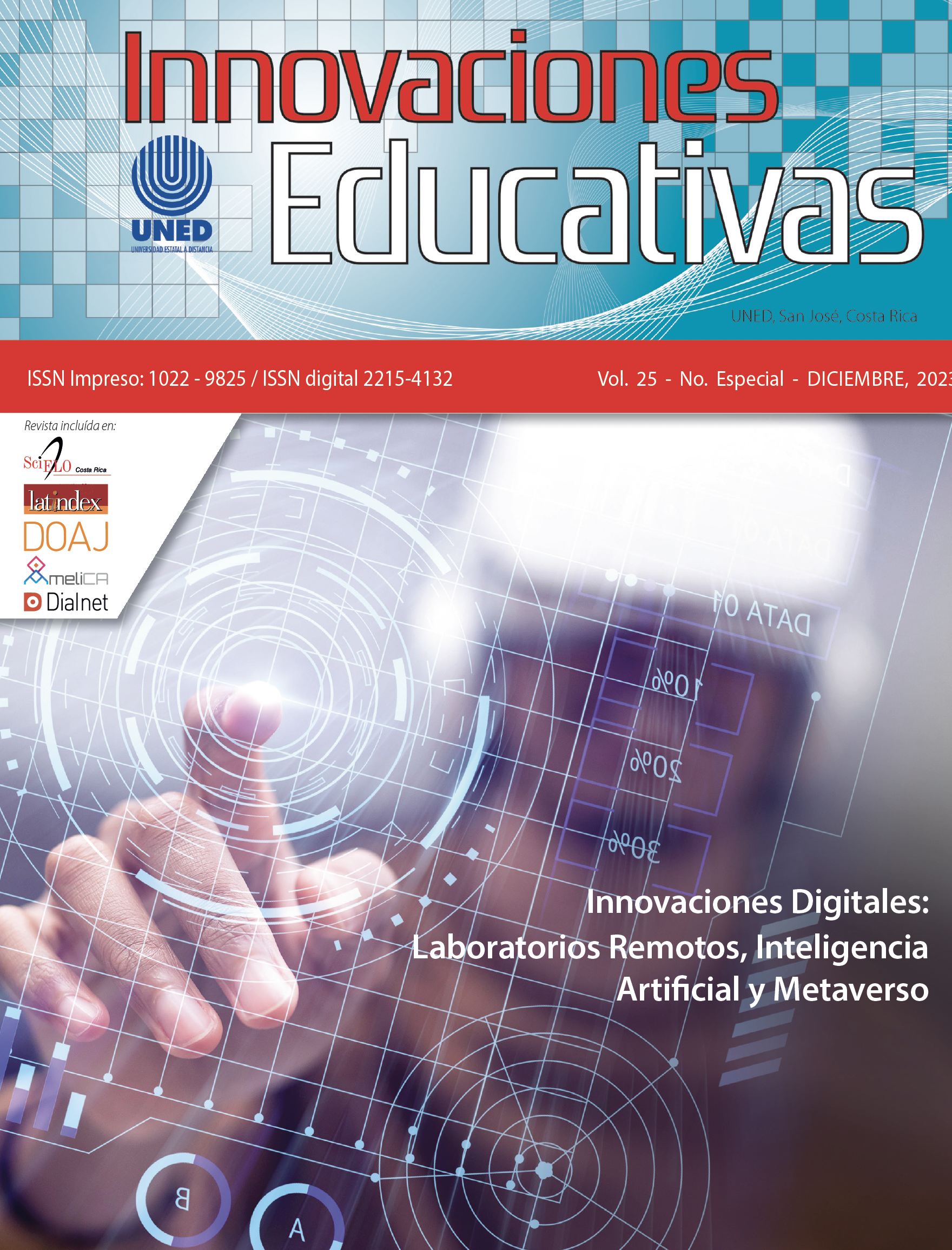Digital Technologies and Artificial Intelligence: evidence of their effectiveness in education
DOI:
https://doi.org/10.22458/ie.v25iEspecial.5084Keywords:
Education, education system, digital technology, digitalization, artificial intelligenceAbstract
The incorporation of digital technologies (DT) in educational processes is a reality, especially after the COVID-19 crisis and the expansion of Artificial Intelligence (AI). But still, the use of these technologies raises questions, above all, regarding their effectiveness in educational terms. This editorial article aims to reflect on the role of technologies in general, and AI in particular, in the current educational context. To this end, it examines international evidence on the subject for different educational levels. This review considers the most commonly used tools, modalities and pedagogical strategies that best accompany the use of these technologies in education. Finally, concrete ideas are proposed to effectively integrate the different DT and to understand the transversal role of AI, both in the teaching-learning and administrative processes, so that this can benefit the roles involved.
References
Bernard, R. M., Abrami, P. C., Borokhovski, E., Wade, C. A., Tamim, R. M., Surkes, M. A., & Bethel, E. C. (2009). A meta-analysis of three interaction treatments in distance education”. Review of Educational Research, 79, 1243–1289. https://doi.org/10.3102/0034654309333844v1
Camilleri, M.A. & Camilleri, A.C. (2019). The students’ readiness to engage with mobile learning apps”. Interactive Technology and Smart Education 17(1), 28-38.
Chiu, T. K. F., Xia, Q., Zhou, X., Chai, C. S., & Cheng, M. (2023). Systematic literature review on opportunities, challenges, and future research recommendations of artificial intelligence in education. Computers and Education: Artificial Intelligence, 4, 100118. https://doi.org/10.1016/j.caeai.2022.100118
Fotaris, P., Pellas, N., Kazanidis, I., & Smith, P. (2017). A Systematic review of augmented reality game-based applications in primary education. Proceedings of the 11th European Conference on Games Based Learning, ECGBL 2017, pp.181-190, 2017.
Hu, X., Gong, Y., Lai, C., & Leung, F. K. (2018). The relationship between ICT and student literacy in mathematics, reading, and science across 44 countries: A multilevel analysis. Computers & Education, 125, 1-13, 2018. https://doi.org/10.1016/j.compedu.2018.05.021
Lusa, H., Adnan, A., & Yurniwati, Y. (2021). Effect of blended learning on students' learning outcomes: A meta-analysis. Jurnal Pendidikan Progresif, 11(2), 309-325.
OECD (2015). Students, Computers and Learning: Making the Connection. París: Organisation for Economic Co-operation and Development (OECD). https://doi.org/10.1787/9789264239555-en
Organización de los Estados Iberoamericanos. (2022). Informe diagnóstico sobre la educación superior y la ciencia post COVID-19 en Iberoamérica. Perspectivas y desafíos de futuro. http://bit.ly/46LPCT6
Paz, L.E., Gisbert, M., & Usart, M. (2022). Competencia digital docente, actitud y uso de tecnologías digitales por parte de profesores universitarios (Pixel-Bit. Revista de Medios y Educación, 63, 93-130. https://doi.org/10.12795/pixelbit.91652
Petko, D., Cantieni, A., & Prasse, D. (2017). Perceived quality of educational technology matters: A secondary analysis of students’ ICT use, ICT-related attitudes, and PISA 2012 test scores. Journal of Educational Computing Research, 54(8), 1070-1091.
Smith, E. E., Kahlke, R., & Judd, T. (2020). Not just digital natives: Integrating technologies in professional education contexts. Australasian Journal of Educational Technology, 36(3), 1–14. https://doi.org/10.14742/ajet.5689
Steenbergen-Hu, S., & Cooper, H. (2013). A meta-analysis of the effectiveness of intelligent tutoring systems on K–12 students’ mathematical learning. Journal of Educational Psychology, 105(4), 970–987
Usart, M. (2020). ¿Qué sabemos sobre la efectividad de las tecnologias digitales en la educación? Que_funciona_18_castella.pdf (ivalua.cat)
Williams, C., & Beam, S. (2019). Technology and writing: Review of research. Computers & education, 128, 227-242.
Downloads
Published
How to Cite
Issue
Section
License
Copyright (c) 2023 Innovaciones Educativas

This work is licensed under a Creative Commons Attribution-NonCommercial-NoDerivatives 4.0 International License.

